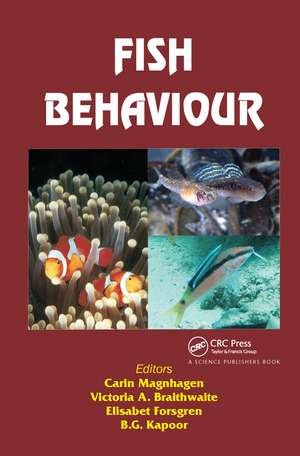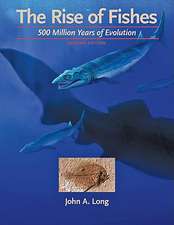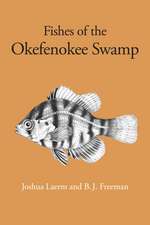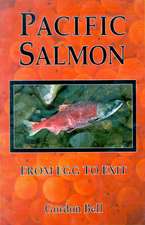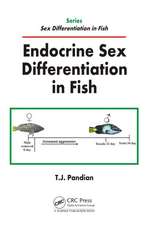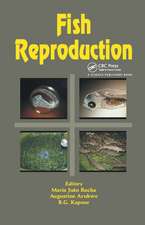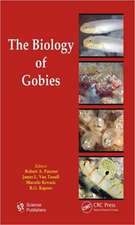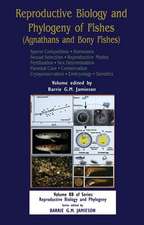Fish Behaviour
Editat de Carin Magnhagen, Victoria A. Braithwaite, Elisabet Forsgren, B. G. Kapooren Limba Engleză Hardback – 9 ian 2008
Preț: 1360.64 lei
Preț vechi: 1659.33 lei
-18% Nou
Puncte Express: 2041
Preț estimativ în valută:
260.35€ • 272.60$ • 215.95£
260.35€ • 272.60$ • 215.95£
Carte tipărită la comandă
Livrare economică 09-23 aprilie
Preluare comenzi: 021 569.72.76
Specificații
ISBN-13: 9781578084357
ISBN-10: 1578084350
Pagini: 678
Dimensiuni: 156 x 234 x 36 mm
Greutate: 1.42 kg
Ediția:1
Editura: CRC Press
Colecția CRC Press
ISBN-10: 1578084350
Pagini: 678
Dimensiuni: 156 x 234 x 36 mm
Greutate: 1.42 kg
Ediția:1
Editura: CRC Press
Colecția CRC Press
Cuprins
PART 1: The Basis: The Senses of Fish: Chemosensory, Visual and Octavolateralis; Cognition: Learning and Memory; Hormones and Social Behaviour of Teleost Fish; The Genetics of Fish BehaviorPART 2: Essentials of Life: Migration and Habitat Choice in Marine Fishes; Fish Foraging Behaviour in Theory and Practice; Assessment of Predation Risk by Prey Fishes; Variation in Sexual Selection in Fishes; Mate Choice; Parental Care and Sexual Selection; Alternative Reproductive Tactics in FishesPART 3: Coping with a Complex World: Cooperative Behaviour in Fishes; Group-Living and Social Networks; Decision Making and Trade-offs in Fish Behaviour; Parasites and Fish Behaviour; New Perspectives on Marine Cleaning Mutualism; Behaviour and Welfare in Farmed Fish
Notă biografică
Carin Magnhagen, Victoria A. Braithwaite, Elisabet Forsgren and B. G. Kapoor
Descriere
Fishes are by far the most species-rich vertebrate taxon, and it is also the vertebrate group with the most strikingly diverse repertoire of behaviours and behavioural adaptations. As such, they provide us with many opportunities to explore the fascinating complexities of animal behaviour. Central questions addressed in this book include: How do sensory input, hormones, genetics and experience interact to shape individual behaviour? What should a fish do to be in the right place at the right time � and how should it behave to be an efficient predator yet not become the subject of predation itself? How to find a mate � or to find the best mate? Should all fish do the same, or is the optimal behaviour dependent on individual characteristics? How does reproductive behaviour affect what fish look like, in terms of colour, body form or body size? And how do fish cope with their complex social and biological environment, including parasites, competitors and collaborators? This new book provides an exciting overview of the many new insights offered by recent research on fish behaviour. The chapters are written by prominent international scientists and are aimed not only at fish biology students and researchers but anyone interested in the interplay between behaviour, ecology and evolution.
